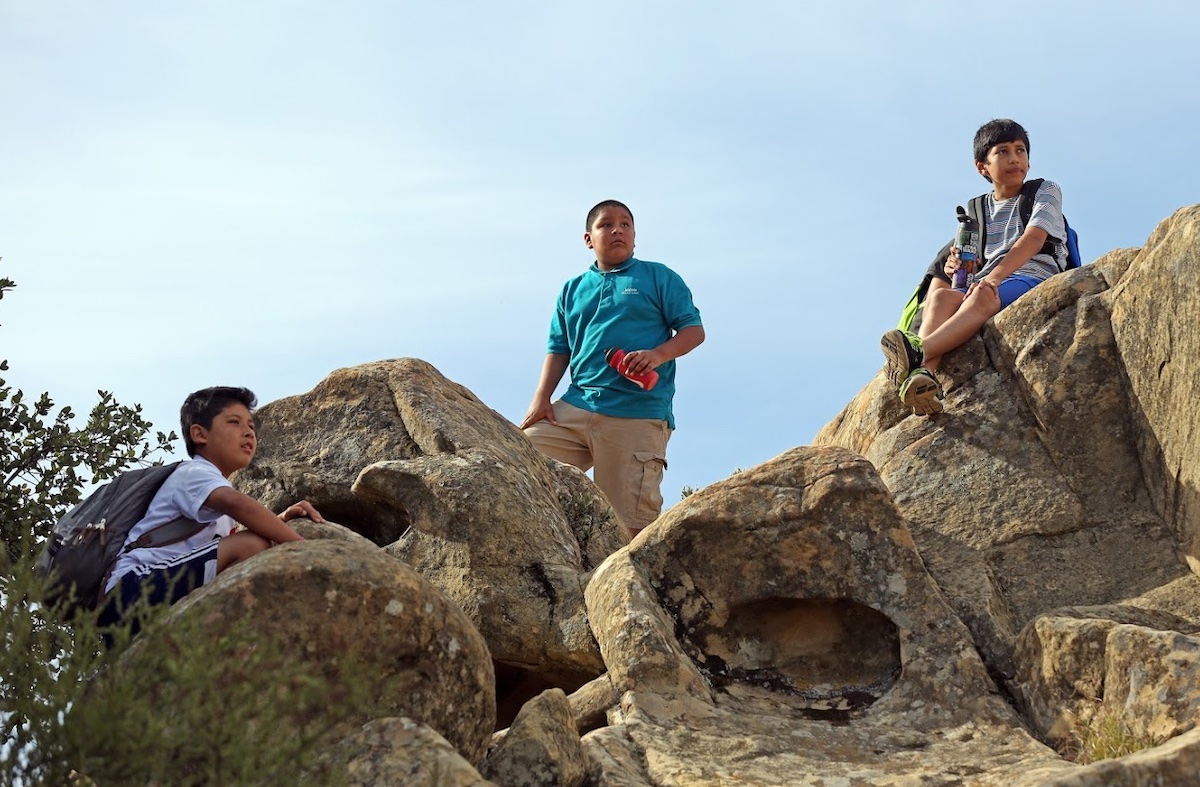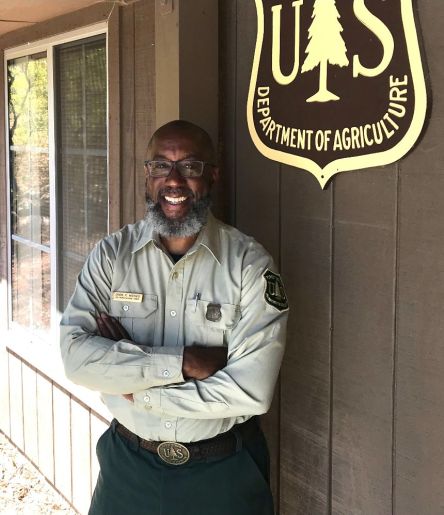The News Letter | I Chickened Out on Talking About Race and the Los Padres
My Mea Culpa and a Promise to Do Better

It wouldn’t have been my first question. Or even my second or third. But at some point during my interview with Daryl Hodges, the new Santa Barbara District Ranger (pictured below) for the U.S. Forest Service, I could and should have asked about race.
That’s because the national forest system, like many other American institutions these days, is starting to finally reckon with its racial divides. A 2019 nationwide survey found that 88-95 percent of all visitors to public lands are white. While Black people make up 13 percent of the population, they account for less than one percent of visits. Locally, only 15 percent of trips to the Los Padres National Forest were made by Latinx residents, even though they comprise a full 47 percent of Santa Barbara County’s population.
And think about it ― when you’re tromping around the backcountry, how many of the people you pass are people of color? Very few, in my experience. It’s one of those things white people don’t notice from within our pleasantly opaque cloud of privilege until it’s pointed out to us.

To its credit, the Forest Service is being honest about these issues. It has acknowledged the less savory parts of its past, when it segregated campsites and distributed promotional materials with exclusively white faces. And it has made legitimate efforts to diversify not only its visitor base but also its staff. Fully 35 percent of the agency’s top leadership is now made up of racial minorities, and new initiatives are consistently being rolled out to bring more inclusion to public lands.
I knew some of this going into my interview with Hodges. (The story publishes this Thursday.) I’d reported on the issue from a related angle when our state senator Monique Limón created an equity grant program with $19 million in funding to bring underserved California communities to the great outdoors. I’d also recently heard about Latino Conservation Week when Los Padres ForestWatch partnered with Wilderness Youth Project to take kids camping and hiking.
As part of our wide-ranging conversation about his new posting ― talking about trails, fire, logging, cannabis, steelhead, and so on ― I could have easily asked Hodges about any diversity initiatives he or his agency might have planned for the Los Padres. And what it was like to be a Black public official in a mostly white profession serving mostly white patrons.
What evidence, if any, has he seen of systemic racism within the Forest Service in his 30-year career, either toward visitors or staff? Did he encounter any stereotyping or resistance on his way up the ladder to ranger? What changes has he witnessed or been part of to address ethnic disparities in visitorship? That kind of stuff.
But instead, I panicked. I balked. And in that nanosecond of indecision, my brain somehow convinced me that Hodges would take offense to any such questions. So I said nothing and avoided the topic. It’s been a week, and I’m still kicking myself. It deprived not only Hodges of the opportunity to give his opinion on an important and pertinent issue but also our readers of the chance to ponder that it is in fact an issue.
I still don’t exactly know why I chickened out. Because that’s what it was: a moment of cowardice, not any kind of legitimate concern over personal respect or professional decorum. Hodges was great to talk to ― candid, knowledgeable, down to earth ― and I seriously doubt he would have taken my questions for anything but the honest inquiry they would have been.
Part of it, I’m sure, was privilege. As a middle-class white guy, I have the privilege of avoiding uncomfortable topics when I want to. Part of it, too, was likely a previous brush with being canceled over an intentionally misconstrued comment. I guess I’m gun-shy. Both excuses, I realize, are painfully lame.
And as a journalist, I don’t have that prerogative of sidestepping stuff that makes me jumpy. Addressing difficult subjects head-on is part of the job. Hence this public self-critique. The fact is, I blew it, but I hope that by acknowledging the mistake, I can learn from it.
Being uncomfortable is okay. What’s not okay, I understand a little better now, is letting that temporary unease get in the way of talking about big things that need fixing. I promise to do better next time.
For the fellow white people out there, we can handle it. That butterfly in your stomach won’t kill you. People of color have endured much, much more for much, much longer. And if you find yourself confused or overwhelmed by these tricky conversations, take a deep breath and go for a hike. Just be sure to notice the other people on the trail.
Support the Santa Barbara Independent through a long-term or a single contribution.




You must be logged in to post a comment.